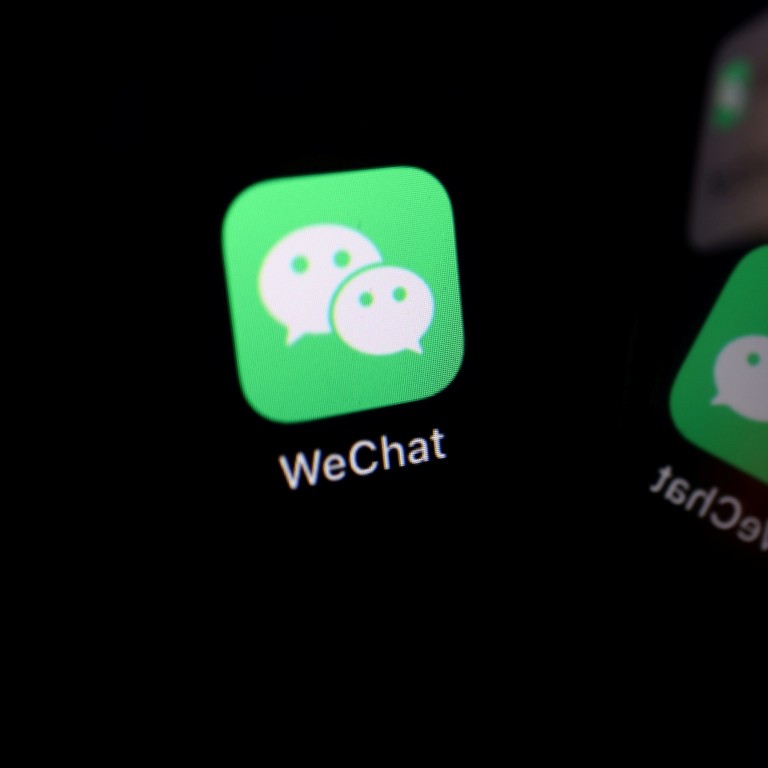
Tencent’s WeChat to stop routinely accessing photos after a tech influencer publicised the behaviour on Weibo
- WeChat’s background scanning for new photos was said to run every few hours and found using Apple’s new “Record App Activity” feature in iOS 15
- The company said the behaviour will be removed from the app in a future update, but other apps have been found to do the same thing
Chinese super app WeChat has promised to stop regularly accessing users’ photos after the behaviour was publicised by an influencer online.
The country’s largest social media app, with 1.25 billion monthly active users (MAUs), was found to be frequently accessing photo galleries even when not in use, sparking privacy concerns. The behaviour was publicised by a tech influencer who goes by the name Hackl0us on the microblogging platform Weibo.
The app, operated by Tencent Holdings, periodically accesses user photos for durations of up to 1 minute each while running in the background, according to Hackl0us, citing conversations from a Telegram chat group. Accompanying screenshots suggested WeChat accesses photo galleries every few hours.
Tencent’s League of Legends mobile game released in China amid crackdown
The activity was said to be discovered using Apple’s new “Record App Activity” feature on iOS 15, released last month.
A WeChat representative said the app looks for new images to make it “faster and smoother for users to send photos”. But the company said the app only accesses the full user gallery when authorised by the user.
“Weixin takes user privacy seriously,” the company said in a statement, using the Chinese name for WeChat. “Weixin does not collect, save, or upload any images from a user’s album without the user’s authorisation.”
Background scanning for new photos “will be cancelled in the new version”, a company representative said.
The same influencer later added that Tencent’s QQ messaging app and Taobao, Alibaba Group Holding’s top online shopping marketplace with roughly 900 million MAUs, have also been found to be routinely accessing user photos.
Taobao and QQ did not immediately respond to requests for comment. Alibaba is the owner of the South China Morning Post.

01:09
China reportedly slows down online game approvals as crackdown on video game addiction continues
The activity is “extremely disgusting”, the influencer said, because photos are private and scanning occupies memory and consumes power. His proposed solution was for users to turn off these permissions in system settings.
After the issue was publicised, netizens started sharing their concerns about the activity, and continued to chime in even after WeChat’s response.
“Now that they can scan photos, it’s quite easy to read other stuff on the phone,” one Weibo user posted. Another said, “In this era, I’m running naked on the internet every second.”
China’s data security laws may complicate its bid to join Pacific Rim trade pact
Big Tech companies in China have come under greater pressure to address privacy issues in recent years. The Ministry of Industry and Information Technology started routinely monitoring apps for privacy issues in 2019. It has singled out more than 1,300 apps to date for excessive permissions, illegally collecting user information and misleading customers.
New data related laws and regulations this year have also required companies to make changes to how they operate.

